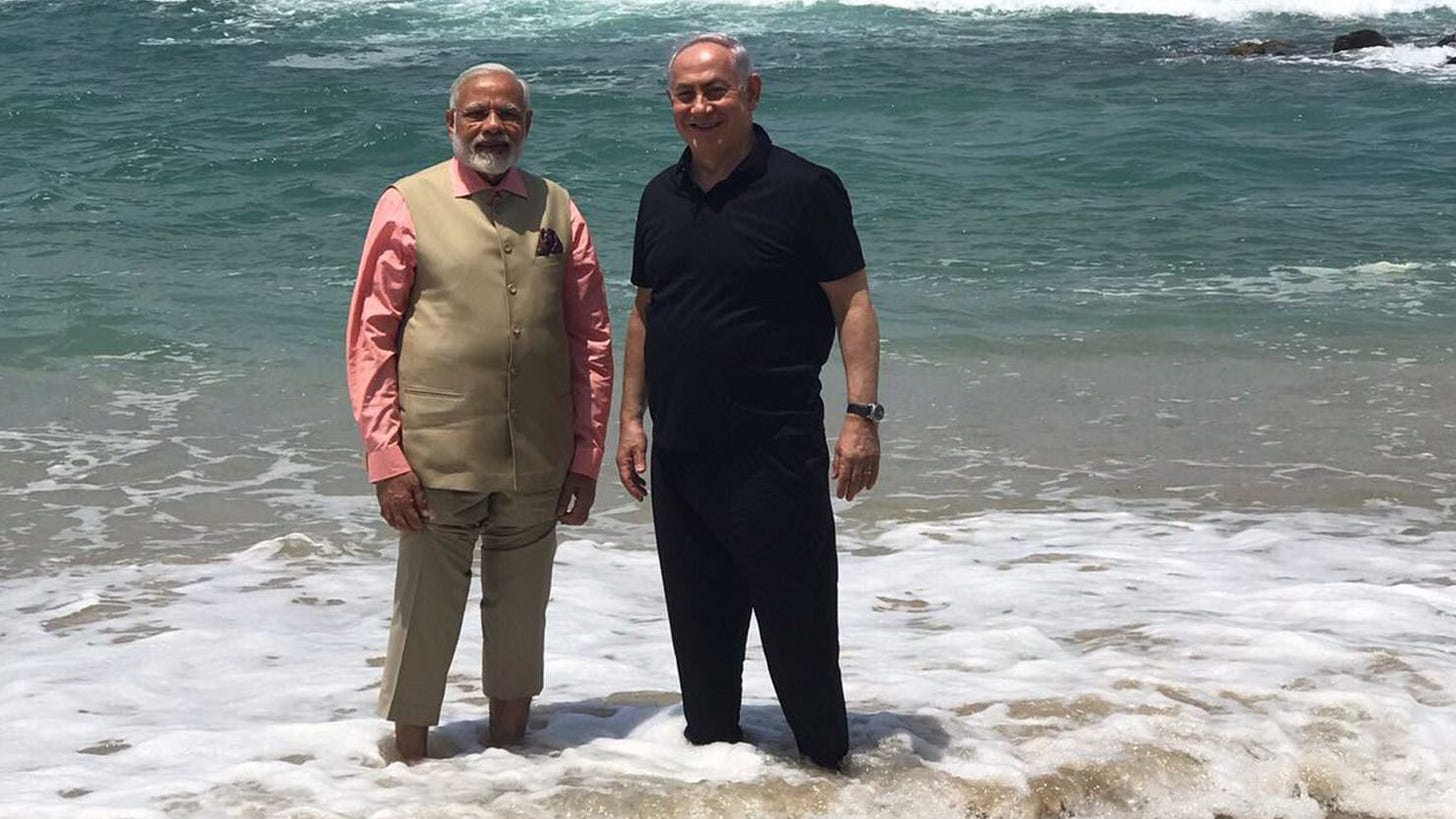Welcome to the Brown History Newsletter. If you’re enjoying this labor of love, please do consider becoming a paid subscriber. Your contribution would help pay the writers and illustrators and support this weekly publication. If you like to submit a writing piece, please send me a pitch by email at brownhistory1947@gmail.com.
Don’t forget to check out our SHOP and our Podcast.

Recommended Reads/Listens:
What India Gets From Israel?

India's Foreign Minister, S Jaishankar, recently stated in the Parliament that the country's pro-Israel policy is driven by its “national interest” for arms trade with Israel. The statement comes at a time when India's consistent support for Israel, including its voting patterns in the United Nations General Assembly (UNGA), has drawn attention to the nation's seemingly contradictory stance amid Israel's ongoing actions in Palestine, which many have described as genocidal.
In October 2023, India abstained from voting in favour of a U.N. General Assembly resolution calling for a ceasefire during Israel's invasion of Gaza. By December, as the death toll in Gaza surpassed 20,000, India shifted its position and voted in favour of a ceasefire. However, in September 2024, India again abstained from voting in favour of a U.N. General Assembly resolution "demanding that Israel brings to an end its unlawful presence in the Occupied Palestinian Territory without delay and within the next 12 months”.
More recently, on December 3, India voted in favour of a resolution at the U.N. General Assembly that reiterated the call for “the achievement, without delay, of a comprehensive, just, and lasting peace in the Middle East,” in accordance with relevant U.N. resolutions, including an end to Israel’s occupation of territories seized in 1967, including East Jerusalem. This was followed by another resolution on December 11 calling for an end to the war in Gaza, which India also supported.
Despite these recent votes, India abstained in April from a resolution imposing an arms embargo on Israel, revealing a pattern of contradictory positions in its foreign policy.






